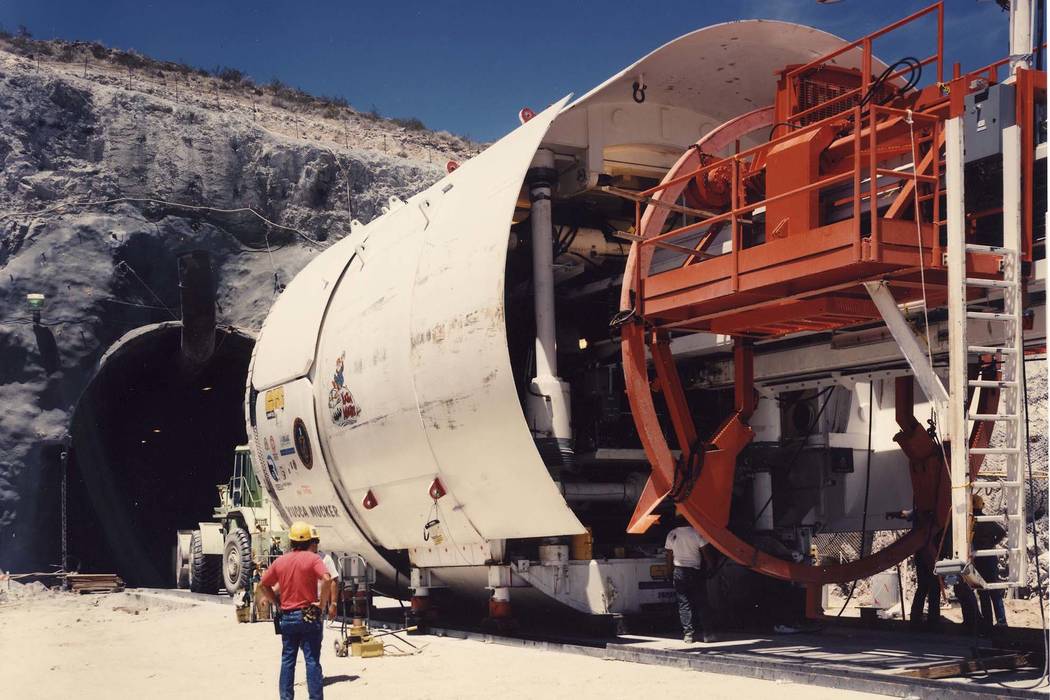
The storage of radioactive waste in Yucca Mountain is a tough sell to the public. This is far more of an emotional subject than a logical one. We have been taught since we were children to avoid anything radioactive. We associate radioactivity with nuclear bombs and the destruction they can cause.
The reality is that we are exposed to radiation every single day. According to the Nuclear Regulatory Commission, about half of the radiation we encounter comes from background radiation or ubiquitous radiation that reaches everyone on Earth.
You don’t have to go near a nuclear plant or get an X-ray to receive a dose of radiation—these emissions can come from inconspicuous household items such as nuts, granite countertops, glowing signs, fluorescent lights, and smoke detectors. Of course, since the amounts of radiation we are in contact with daily are in such miniscule amounts we don’t even think about it.
Radioactive waste comes from a variety of sources, including mining, manufacturing and the medical industry, but the primary source is from power plants. Nuclear power plants were once thought to be the answer to eliminating our dependence on fossil fuels. Nuclear energy is considered as one of the most environmentally-friendly sources of energy as it produces fewer greenhouse gas emissions during the production of electricity as compared to traditional sources like coal power plants.
While being environmentally friendly is the big plus of nuclear energy, disposal of radioactive waste and protecting people and the environment from its radiations is the big drawback of nuclear energy. The radioactive waste produced can pose serious health effects on the lives of people as well as the environment.
The Chernobyl accident that occurred on April 26, 1986 at the Chernobyl Nuclear Power Plant in Ukraine was the worst nuclear accident in history. Its harmful effects on humans and ecology can still be seen today. Then there was the accident that happened in Fukushima, Japan. Although the casualties were not high, it caused serious environmental concerns.
Currently, nuclear waste is stored above ground in dozens of locations around the United States. Thousands of tons of nuclear waste are sitting in containers, often near large cities and waterways. Scientists state that the containers are safe for the storage of the waste for decades but while the containers may be safe they are subject to other potential problems. Natural disasters, terrorists, and other hazards are much more difficult to manage across dozens of locations controlled by different agencies.
The push for two centralized repositories was in large part to eliminate these temporary above-ground facilities. Through a long and thorough evaluation process, Yucca Mountain was identified as meeting the scientific criteria as a potential site.
Initially, politicians in Nevada were open to the idea. They recognized the need for the repository and that Nevada could leverage the repository to the state’s benefit. But that position has changed. Led by Harry Reid and President Obama, all work on Yucca Mountain was stopped. They did not offer another solution, instead opting for the strategy of simply ignoring the issue of long-term nuclear waste disposal and leaving it for others to solve later.
The state has now taken a hard-line stance against the repository even though there haven’t been any real scientific studies to support their view that it is not a suitable location. It is not difficult to see that our state-elected officials are in opposition because it’s simply easier to oppose it and appear to be “protecting” Nevadans against nuclear waste.
It is politically far easier to be against something like radioactive waste that we have been conditioned to be afraid of than try to convince the public that it will benefit the state.
But here’s the thing, the Nevada Test Site was home to hundreds of nuclear tests. Do you think that there might already be radiation present there? And in the end, if the federal government determines that it is going to open Yucca Mountain, there is virtually nothing Nevada can do about it. Nothing.
Perhaps a forward-thinking state-elected official might recognize that Nevada may get the repository whether we want it or not and try to leverage that to benefit the state.
We could be negotiating with the feds to get some of our land returned to us and out of federal control. We could be negotiating for more water from the Colorado River instead of shipping it to Arizona, California, and Mexico. We could be negotiating for more funds for our schools, universities and roads. We could be getting large federal payments to help balance our state’s budget. Even if the repository did not end up being proven scientifically sound, we could be getting those negotiated benefits during the review process.
But that won’t happen. It is far easier for politicians to play to the emotions of the voters and oppose the project, regardless of the long-term results.
Tim Burke is a businessman, philanthropist, educator and Pahrump resident. Contact him at timstakenv@gmail.com